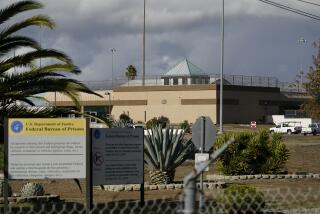Senate leader seeks investigation of sex offender monitoring
The high-profile case of two Orange County sex offenders accused of killing at least four women has spurred Senate leader Darrell Steinberg to seek an investigation into whether California’s sex offender registration laws and residency restrictions have created a more dangerous population of homeless felons.
Steinberg (D-Sacramento) is asking the Legislature’s Office of Inspector General to conduct the inquiry.
Franc Cano and Steven Gordon are accused of killing four women in a matter of months without drawing the attention of state and federal agents monitoring them. Cano was on both state parole and federal probation. Gordon was on state parole when the first two deaths reportedly occurred, and federal probation after that.
Both men wore electronic GPS monitors on their ankles that recorded and reported their locations.
In a letter signed Wednesday, Steinberg has asked Inspector General Robert Barton to investigate whether GPS monitoring is effective in deterring crime and what its impact has been on the workload of parole agents assigned to supervise offenders.
He also asks how residency restrictions under Jessica’s Law, which prevent many sex offenders from living near parks and schools, have contributed to the population of transient parolees and what the public safety consequences have been.
In an email to the Times, Barton said Steinberg’s request was “quite broad” and that his agency, since major budget cuts in 2011, no longer had staff devoted to legislative requests in addition to those assigned to duties monitoring fraud and abuse investigations within the prison system.
“As in the past with requested reviews, once we have had an opportunity to determine the full scope of the request, we will assemble a team with the appropriate skills from our existing workforce to begin working on the request,” he said.
“That said, we are committed to being responsive to the Legislature and their requests,” Barton said. “We intend to fulfill our responsibility to the citizens of California by assessing and recommending best practices in any area of the corrections system when requested, and in this instance, the GPS monitoring program for state parolee sex offenders.”
The state Sex Offender Management Board, created to weigh in on such policies as well as on treatment programs required by law, has argued that California would do better to reduce broad registration requirements and focus resources on those sex offenders considered most dangerous.
In 2011, the board issued a report concluding “the high and still escalating rate of homelessness among registered sex offenders in California is the single greatest obstacle to the effective management of sex offenders in California.”
The latest state report, from February, noted that 6,400 of the 75,000 registered sex offenders out of prison in California are listed as homeless.
More to Read
Start your day right
Sign up for Essential California for news, features and recommendations from the L.A. Times and beyond in your inbox six days a week.
You may occasionally receive promotional content from the Los Angeles Times.







